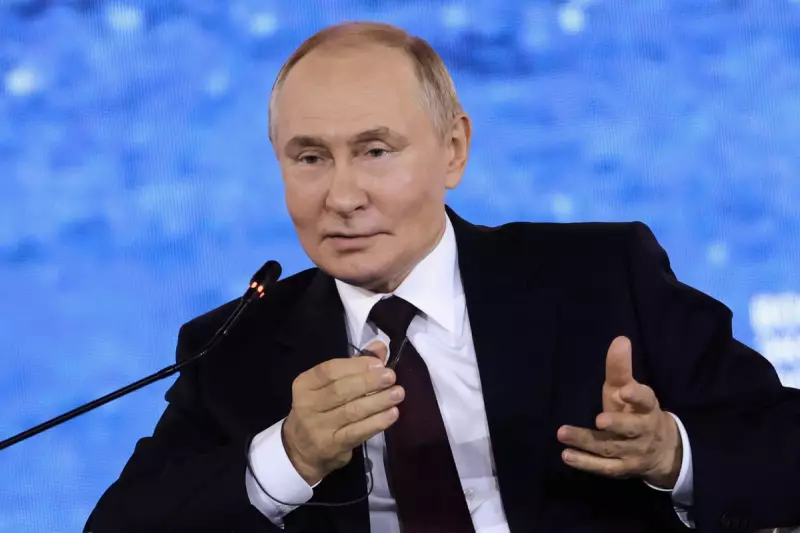
Vladimir Putin has delivered a chilling threat of global retaliation, warning that Moscow will not hesitate to arm the enemies of Western nations if NATO troops are officially deployed to Ukraine. The Russian President's stark declaration marks a severe escalation in rhetoric and raises the spectre of a worldwide proxy conflict.
Speaking at the St. Petersburg International Economic Forum, Putin framed any Western military intervention as a direct provocation with catastrophic consequences. "If someone considers it possible to send official military contingents to Ukraine, this would be a very serious escalation of the conflict, and this would lead to serious consequences," he stated.
The Kremlin's Retaliation Blueprint
When pressed on what form these "serious consequences" might take, the Russian leader was unequivocal. He explicitly stated that Russia would be forced to respond by supplying advanced weapons to regions hostile to those countries sending troops.
"If they supply weapons to the combat zone and call for using these weapons against our territory, why don't we have the right to do the same?" Putin argued, attempting to frame the potential action as a symmetrical response. "But I'm not sure that this will lead to anything good for these countries either."
Exploiting Global Fault Lines
While Putin did not specify which regions or groups might receive Russian arms, analysts suggest several likely candidates:
- Anti-Western militant groups in the Middle East
- Regimes and factions opposing US and European interests in Africa
- Non-state actors capable of launching asymmetric attacks
This strategy appears designed to exploit existing global tensions and divert Western attention and resources away from Ukraine.
Western Calculations and the Red Line
The threat comes amid ongoing debate within NATO countries about the possibility of sending military instructors or advisors to Ukraine, though official combat troop deployment remains off the table for most alliance members.
France's President Emmanuel Macron has been particularly vocal about not ruling out any options, while other nations like Germany and the United States have expressed caution about actions that could be perceived as direct NATO involvement.
Putin's warning establishes a clear red line that analysts believe is intended to deter further Western support and test the unity of the NATO alliance. The effectiveness of this strategy depends largely on whether Western powers perceive the threat as credible and how much risk they are willing to accept in their support of Ukraine.





